
Taejo Wang Geon is a 2000 Korean historical period drama. Directed by Kim Jong-sun and starring Choi Soo-jong in the title role of King Taejo. The drama aired from April 1, 2000, to February 24, 2002, in 200 episodes. The scene dealing with the end of Gungye gained a lot of popularity, recording the highest viewership rating of 60.4% in the metropolitan area.
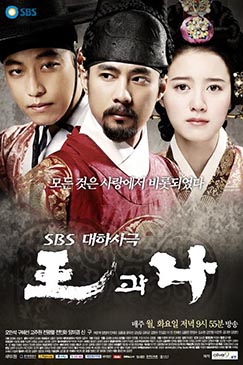
The King and I is a South Korean historical series that aired on SBS from August 27, 2007 to April 1, 2008 on Mondays and Tuesdays at 21:55. Starring Oh Man-seok, Koo Hye-sun, and Go Joo-won, the series was moderately successful, with its ratings peak at 25%.

The Great King, Sejong is a 2008 South Korean historical television series depicting the life of the fourth monarch of Joseon, Sejong the Great. Considered one of the greatest kings in Korean history, Sejong created Hangul, the Korean alphabet. The series aired on KBS from January 5 to December 7, 2008, on Saturdays and Sundays at 21:30 for 86 episodes. Episodes 1 to 26 aired on KBS1, and episodes 27 to 86 aired on KBS2.

The South Korea men's national volleyball team represents South Korea in international volleyball competitions and friendly matches, governed by Korea Volleyball Association. The Republic of Korea (ROK) has competed in the Olympic Games eight times, but has not featured since the 2000 Olympic Games in Sydney, Australia. The national team's best performance at the Olympic Games was 5th place at the 1984 Games in Los Angeles, California, United States. The national team at the FIVB World Championship competed nine times, with their best result at 4th place in 1978. On continental level, The national team won three gold medals at the Asian Games in 1978, 2002 and 2006. And at the Asian Championship, the national team won four gold medals, two of these was at home in 1989 Seoul and 2001 Changwon and the other two are in 1993 and 2003. The national team now ranks 30th in the FIVB World Rankings and their current head coach is Im Do-heon.

5th Republic is a 2005 South Korean drama television series that aired on MBC from April 23 to September 1, 2005, on Saturdays and Sundays at 21:40 (KST) for 41 episodes. It takes place during the 1981–1988 Fifth Republic of South Korea under the dictatorship of President Chun Doo-hwan. It follows his rise to power through a military coup to his downfall after a series of democratic movements, including the Gwangju uprising and the June Democratic Uprising.
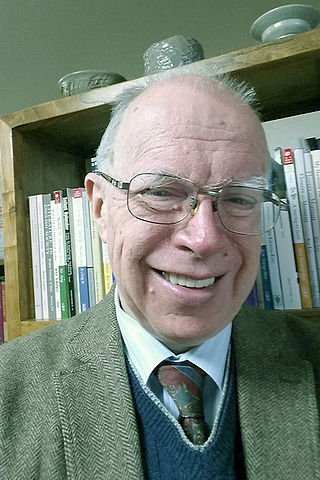
Brother Anthony is a translator, scholar, and member of the Taizé Community. He was born Anthony Graham Teague in the United Kingdom but has since become a naturalized citizen of South Korea under the Korean name An Sonjae (Korean: 안선재).
Fighters for a Free North Korea (FFNK,자유북한운동연합) is an organization formed in South Korea that is known for periodically launching balloons carrying human rights and pro-democracy literature, DVDs, transistor radios and USB flash drives from South Korea into North Korea. Over two million such balloons have been launched. The balloons, which generally reach their destination area after three to four hours in the air, are timed to release their materials in the Pyongyang area.

North Korean People's Liberation Front is a South Korean militant paramilitary organization consisting of North Korean defectors, formed by former defecting members of the Korean People's Army, planning to overthrow the North Korean government. It is based in Seoul.

Balloon propaganda campaigns between North and South Korean leaflet campaigns through the use of balloons as a distribution method since the Korean War. A variety of other contents have also been included with the balloons. Originally, these campaigns were organized by the governments and militaries of the Korean states. Contemporarily, however, they are mainly organized by South Korean non-governmental organizations (NGOs) that regularly involve themselves in balloon release events that aim to send materials censored in North Korea, as well as various other goods, to the North Korean people.
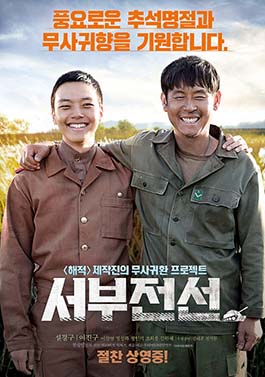
The Long Way Home is a 2015 South Korean period war comedy film written and directed by Cheon Sung-il, about the friendship between a South Korean and a North Korean soldier during the Korean War.

The Guardians is a South Korean television series starring Lee Si-young, Kim Young-kwang, Kim Tae-hoon, Kim Seul-gi and Key. The drama aired on MBC on Mondays and Tuesdays at 22:00 (KST) from May 22 to July 11, 2017.
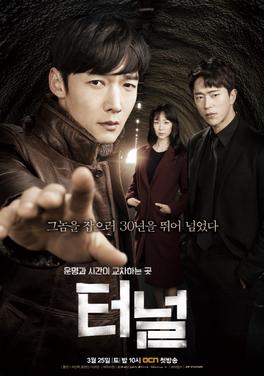
Tunnel is a 2017 South Korean television series starring Choi Jin-hyuk, Yoon Hyun-min and Lee Yoo-young. It replaced Voice and aired on cable network OCN on Saturdays and Sundays in the 22:00 (KST) from March 25 to May 21, 2017 for 16 episodes. The series was inspired by the Hwaseong serial murders.
Cyberactivism in North Korea refers to activism carried out with the use of information technologies such as the Internet and the distribution of information by civil society typically outside of North Korea to initiate and/or support change from within North Korea.
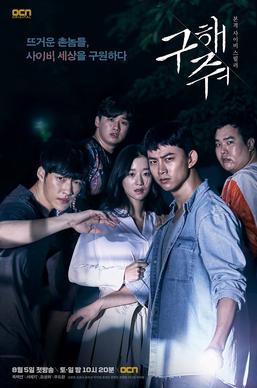
Save Me is a 2017 South Korean television series starring Ok Taec-yeon, Seo Yea-ji, Jo Sung-ha, and Woo Do-hwan. Serving as the first television series from the acclaimed series, Signal producer Lee Jae-moon's company Hidden Sequence, it aired on OCN from August 5 to September 24, 2017 for 16 episodes. This drama series is based on the popular Daum webcomic Out of the World by Jo Geum-san.

Haechi is a 2019 South Korean television series starring Jung Il-woo, Go Ara, Kwon Yul, and Park Hoon. Produced by Kim Jong-hak Production, it aired on SBS TV from February 11 to April 30, 2019, every Monday and Tuesday at 22:00 (KST) for 48 episodes.

Watcher is a 2019 South Korean television series starring Han Suk-kyu, Seo Kang-joon, and Kim Hyun-joo. It aired on OCN every Saturday and Sunday at 22:20 (KST) from July 6 to August 25, 2019.
Daemyeong is a 1981 South Korean television series starring Kim Dong-hoon, Kim Heung-ki, Seo Young-jin, Won Mi-kyung, Kim Sung-won and Baek Il-sub. It aired on KBS1 from January 5, 1981 until December 28, 1981 every Mondays for 52 episodes.















